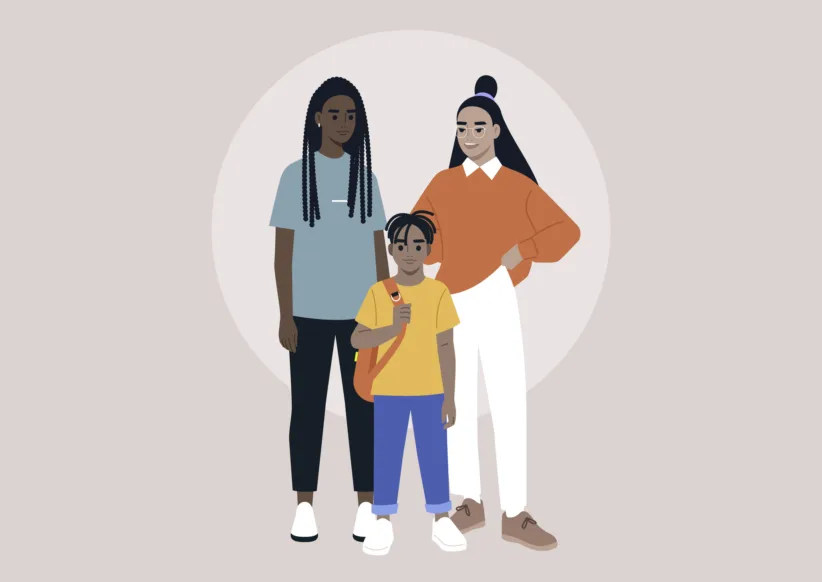I stored my eggs and have fertilized embryos stored at a reproductive fertility clinic. What happens to my genetic material if I get sick or when I die?
The advancement of assisted reproductive technology has transformed the meaning of parenthood and biological relationships in a “family.”
Many states have struggled with the complex legal issues presented by children who are conceived before a parent’s death, but born after the parent’s death. Even more vexing is the question of children who were conceived after a genetic parent’s death using that parent’s genetic material.
State law dictates inheritance rights, Gov. Cuomo recently signed a law to address the issue of inheritance rights of a posthumously conceived child in New York. The legislation allows New York to join 20 other states that have addressed this thorny issue revolving around reproductive technologies.
Children conceived before a parent’s death but born after her death inherit in intestacy from that genetic parent as if they were born in her lifetime. The law also states that “posthumous children are entitled to take in the same manner as if living at the death of their ancestors,” if “a future estate is limited to children, distributees, heirs or issue…”
The only case in New York dealing with the issue arose in 2008 and addressed whether a provision dealing with out-of-wedlock children encompassed posthumously conceived children. In that case, a person created seven trusts in 1969. He died in 2001 survived by two of his three children. His predeceased son had left behind preserved semen for his wife’s use. His wife later gave birth to two sons. The grantor’s trusts provided for his descendants to be beneficiaries of the trusts. The case grappled with whether a child conceived by in vitro fertilization with sperm of a predeceased child fell within the class of persons contemplated by the trust. The court held that the children born with a parent’s consent is entitled to the same rights as a natural-born child. Accordingly, held the court, the after-born child was included in the class of beneficiaries of the trust.
Gov. Cuomo then enacted a second law under which a posthumous child of a genetic donor (called a “genetic child” in the statute) will be recognized as a distributee of the genetic parent if one of four conditions are met:
• The genetic parent expressly consents in writing to the use of the genetic material for posthumous conception and authorizes a specific person to make decisions about its use.
• The parent must give notice to the personal representative of the estate within seven months of the issuance of letters.
• The authorized person must record the consent-authorization with the Surrogate’s Court within seven months of the genetic parent’s death.
• The child must be in utero within 24 months of the genetic parent’s death or born no later than 33 months after the genetic parent’s death.
The statute includes various prerequisites for the writing and provides a sample form that would behoove anyone to follow closely. It also provides mechanisms for revoking the consent.
A related bill is working its way through the New York Legislature to address this issue in the context of marital relations (more particularly, divorce proceedings). The bill would amend the Domestic Relations Law and enact provisions relating to the execution of written forms, prior to assisted reproductive technology services, for consent and directives for the transfer, use, and disposition of cryopreserved embryos or gametes. It would provide for notice prior to the implementation of the terms of such directives. As of Jan. 28 the bill was referred to the judiciary.
This new legislation will help guide the courts in addressing the needs of children, parents, donors, and other beneficiaries of the estate, as well as preventing abusive use of genetic material to improperly gain access to an estate’s assets. That said, it remains unclear how the new legislation will impact a specific bequest in one’s last will and testament of such genetic material; or whether such a bequest would be deemed to comply with the bills. It also does not address posthumous use of cord blood, which can be used to treat certain conditions. It is still critical to consider your genetic material and take steps to ensure that your intentions are carried out.
Alison Arden Besunder is the founding attorney of the law firm of Arden Besunder P.C., where she assists new and not-so-new parents with their estate planning needs. Her firm assists clients in Manhattan, Brooklyn, Queens, Nassau, and Suffolk Counties. You can find Alison Besunder on Twitter @estatetrustplan and on her website at www.besun





















